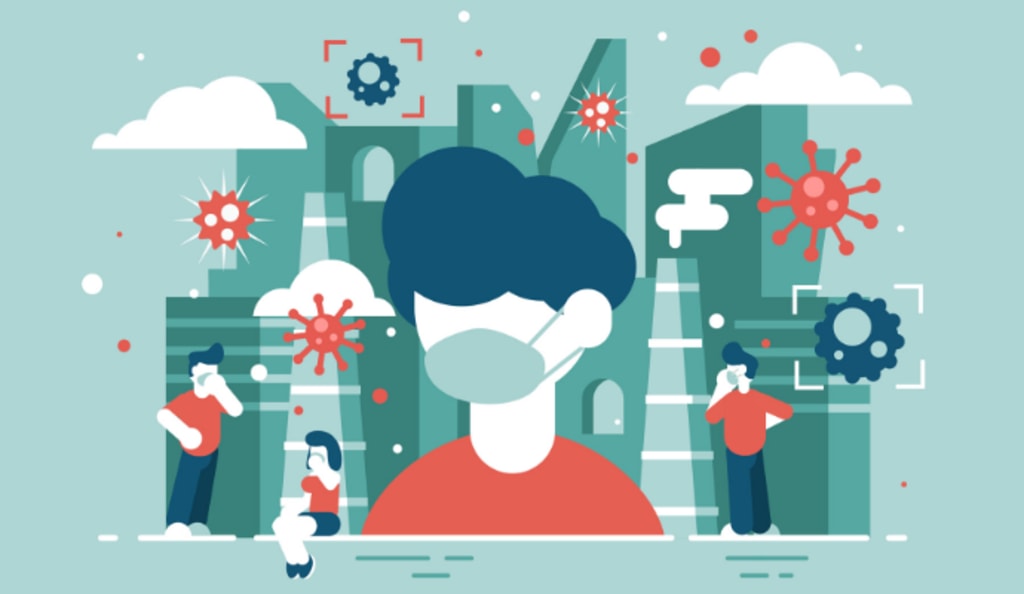Chronic, Invisible Conditions
Their Impact, And Your Impact On Them

Chronic, Invisible Conditions – Their Impact, And Your Impact On Them
You wake up one day, and you can't feel the entire right side of your face, You turn your girlfriend – the love of your life – and she tells you to stop being such a drama queen. You smile, roll your eyes, and go on with your life.
She didn't notice anything wrong, after all. So it must be your imagination.
But the days goes on. And at work, people continue to comment. 'Why are you winking at me?” And you wonder.
“Are you okay?” They ask. And you wonder more.
And at the end of the day, you go home. That same girlfriend – the one who assured you that everything was fine? She is now looking at you in shock. In fear.
And insisting that you go to the doctor's office.
This is Bell's Palsy.
It is a sudden weakness in the face. One half of your face begins to droop. Perhaps your friends or coworkers begin to act as if you are constantly winking at them. Your face may being to look lopsided, one of your eyelids may begin to sag, or you may have trouble closing one eye.
While worrying, these are not life threatening symptoms. You cannot die from these symptoms, nor from Bell's Palsy as a whole.
But this does not mean that Bell's Palsy is not a serious condition. It is, and should be considered as such.
Common in people between the ages of 16 and 60, Bell's Palsy can include drooling, difficulty drinking or eating, an inability to make such facial expressions as frowning or smiling, headaches, and sensitivity to light and sound. Bell’s palsy occurs when the seventh cranial nerve becomes swollen or compressed, resulting in facial weakness or paralysis.
Often, Bell's Palsy clears up on it's own, or with appropriate treatment, which is why a proper diagnosis is so important.
According to Jonathan, of Cocoa Florida, his diagnosis of Bell's Palsy was one of the most frightening moments of his life, It was also, however, an eye opening moment for another reason.
It was with this diagnosis, that Jonathan discovered a truth that many with chronic illnesses or 'invisible' disabilities have been forced to confront for years. A truth that if you do not appear sick, injured, or obviously disabled, then you're health concerns or even disabilities are often overlooked, or even ridiculed.
Deborah, of Port St. John, Florida, spoke quite heatedly about this during a recent interview. Well into her 60s, 'Deb' has found that, while her age plays a large part in how she is treated, it is what people don't see that makes an even larger impact.
It isn't just the surprise on their faces when they hear about her difficulties, she revealed – it is their dismissal. They see her walk with a walker one day, nothing the next, a cane a few days later – and they question it. As though it is inconceivable that one's ability to cope may change from day to day.
Must I be in pain a hundred percent of the time, to be taken seriously? Deb's frustration was clear to see, and it is a frustration that is not new – nor, she revealed, does she expect it to get better any time soon.
This is the reality of what life is like, for so many – from the young and vibrant Jonathan, a bartender at a local sports pub, to Deb, an elderly woman enjoying the last years of her life in whatever way she can.
But they deserve better from us. From those who do not fight a daily battle simply to get through the day, with or without the scorn or ridicule of their neighbors. With or without the looks of disdain upon their neighbors faces when they see a young and healthy young man or woman with a disabled placard upon his car.
We are all fighting our battles, both visible or otherwise, and none of us are the same every day of our lives – but perhaps more importantly than that, these individuals do not owe us anything, let alone an explanation.
To put it quite bluntly, it's none of your damn business.
So the next time somebody reveals some sensitive information about their medical history, do not simply assume that they are lying, or blowing things out of proportion. Accept what they tell you at face value.
It's not up to you to judge how serious the medical conditions of a stranger are from day to day. These are not your battles. But common human decency? You would be surprised how little of that is seen these days, and how far it can go to alleviating some of the stress and anxiety of living with these conditions.






Comments
There are no comments for this story
Be the first to respond and start the conversation.